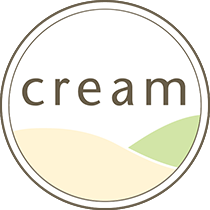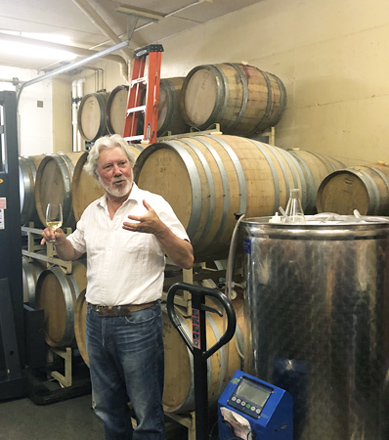Wyncroft
VISIT THIS PRODUCER'S WEBSITE
LOCATE ON GOOGLE MAPS
Country of Origin: USA
Location: Pullman, Southwest Michigan
People: Jim Lester & Daun Page, Owners & Winemakers
Viticulture: Practicing Organic
Items
Jim Lester and Daun Page are changing people’s perception of Michigan wine. For too long, the dialogue around the great wine regions of the world has skipped over Michigan. Revelations come from tasting, and Wyncroft’s wines prove that Southwest Michigan has a great and wonderful, yet undiscovered, wine potential. The husband and wife team are producing profound wines with a French sensibility. We’re proud to tell their narrative and break all preconceived notions of Michigan wine.
Michigan Terroir
Many people are misguided about Michigan’s vine growing potential. Michigan has a prosperous history of producing peaches, cherries, apples and Concord grapes—all clues that vinifera grapes would thrive as well.
Wyncroft owns vineyards within two distinct AVAs: Lake Michigan Shore and Fennville. Both of these AVAs are located in the glacial moraine hills of Southwest Michigan. The mineral rich, stony clay soils left by the glaciers of the last ice age are similar to the soils of the best sites in Europe. These stony clay soils are found in a ridge of hills just 5 to 10 miles from the lakeshore. The high ground provides excellent sun exposure, while the low areas give excellent air drainage on frosty spring mornings. The proximity to Lake Michigan creates a "lake effect" microclimate that moderates winter lows and summer highs, while the abundant lake effect snow insulates the vines against the extremes of Michigan winters.
Up north in the Traverse City area, it is cool; thus producers make wines reminiscent of Germany and Champagne. Southwest Michigan sees more warmth. Wyncroft’s latitude, 42nd parallel, is the same as the Pyrenees Mountains of Northern Spain and Rome, Italy. Going west, it is the border of Oregon and California. The vineyards receive an average of 3,000 heat units per growing season. Compare that to Bordeaux at 2700, Burgundy at 2400, Alsace at 2210, and Russian River Valley at 3600. The growing season is longer than Bordeaux or Burgundy with more heat unit accumulation. This makes Michigan a more reliable area for attaining full ripeness. Also, being more northern than California, excellent acidity is retained in the grapes over the long growing season.
Washington to Michigan; God to Grapes
Jim Lester is one of the Michigan wine pioneers. The Seattle native relocated with his late wife Rae Lee to Michigan in 1976 to pursue a Master's of Divinity degree at Andrews University after graduating from Walla Walla College. The two got into wine because of their passion for cooking, as they wanted to know how to pair wine with food. This led Jim to start making wine as a basement hobby in 1983. His first Pinot Noir stunned him. As a self-taught winemaker, he knew it wasn’t his winemaking know-how. The quality of fruit grown in the region had to be the key for success. It was his ah-ha moment that world-class wines could be made in Southwest Michigan.
With that simple discovery, Lester decided to change his career path and devote his professional life to making 100% Michigan wines. From 1986-1994 he produced wine under the Madron Lake Hills name. Jim and Rae Lee established Wyncroft in 1998 when there were only about 19 total wineries in the whole state of Michigan. They launched the winery in Buchanan, a town located about 10 miles east of Lake Michigan and just 4 miles from the Indiana border. The goal from the start was to craft artisanal wines that express individual vineyards. The two worked tirelessly and passionately to grow their boutique winery via mailing list and self-distribution until Rae Lee passed away in 2009 after battling breast cancer.
Lester remarried to Daun Page, who has become integral to Wyncroft’s story and success. Together, they operate in the style of a French garagiste winery. In 2013, they purchased a picturesque, 100-acre estate in Pullman, within the Fennville AVA. Their garage became their winery and approximately 5.5 acres of vineyards were planted on the estate. Production is still extremely small, less than 2,000 cases annually. The wine labels, modeled after the Arts and Crafts movement, communicate their philosophy. Both the vineyard and cellar work are done by hand with extreme care and attention to detail. True vignerons, they conscientiously farm their vineyards to produce low yields of intense concentration. The vineyards are on the organic side of things, but non-certified (diverse ecosystem, no irrigation, no fertilization). The wines are estate bottled with the labels applied by hand at the winery.
With Jim, Rae Lee, and now Daun’s devotion, Wyncroft has amassed a cult following by focusing exclusively on European grape varieties and techniques. Saying these wines are “impressive for Michigan” is a true understatement. The wines rival those from the great wine regions of the world, hence why it is time to rethink the Michigan terroir.
Media Links
Sipology: A Visit to Wyncroft/Marland Winery
Edible Michiana: Wyncroft Crafts World-Class, European-Style Wines in SW Michigan
Edible Michiana: Getting to Know Winemaker James Lester
The Herald Palladium: Wishes of a Winemaker: Small Winery Keeps Producing Quality Vintage without Matriarch


